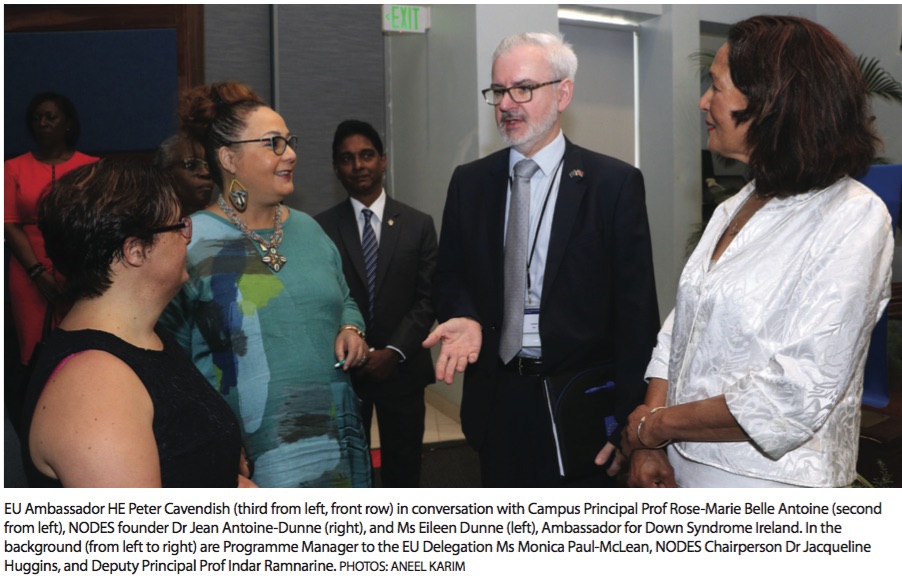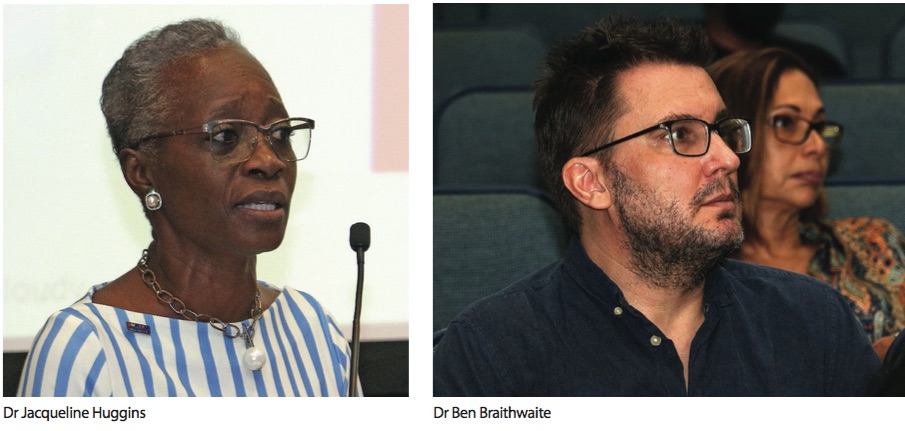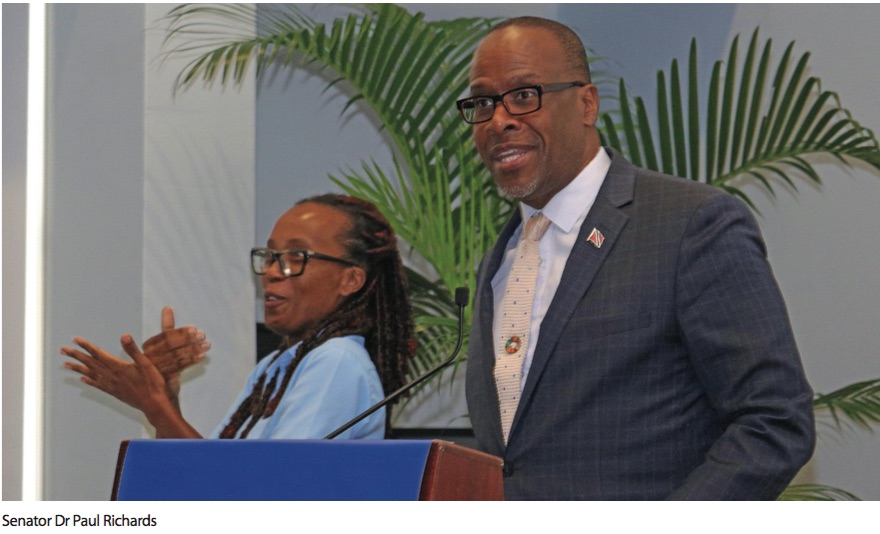NODES Conference 2023 focuses on changing attitudes, and the law, to ensure the rights of persons with disabilities
On April 21, 2023 The UWI Network and Outreach for Disability Education and Sensitization (NODES) held its conference at the Teaching and Learning Complex on the St Augustine campus. The one day conference was entitled, “Disability Matters: Inclusive Futures – Transformative Structures”.
According to the organisers of the conference, the need for inclusion and structural change in society is an urgent matter. This message of ensuring the full rights of those with disabilities was reiterated by all who spoke throughout the day.

In her welcome address, Campus Principal Professor Rose-Marie Belle Antoine noted the continuing work of disability advocacy and the introduction of legislation. She also singled out the need to transform perceptions of and attitudes to those with disabilities.
With a disability bill in the process of being drafted, this message is particularly apt. The discussion generated by members of the Disability Legislation Working Group had change in legislation as their primary focus. The group included Mrs Laura Escayg and Mr Glen Niles, led by Senator Dr Paul Richards, who also served as master of ceremonies at the NODES conference.
Enacting change was also a key message for the European Union Ambassador, HE Peter Cavendish, whose feature address outlined the strategies and support put in place by the EU. His speech, entitled “Leaving no one behind – Disability Inclusion in EU External Action – Sharing Best Practices”, highlighted the necessity of using all available means to ensure the rights of persons with disabilities across all areas of life. Access to education, services, health, employment and justice are pillars of such rights, and the EU is committed to this.
Such a mandate, he said, necessitates the involvement of those with disabilities and groups that advocate for persons with disabilities. The EU Human Rights and Democracy Strategy notes that in Trinidad and Tobago, “adequate legislation is lacking, especially to ensure non-discrimination and equal access in sectors such as education”. Moreover, “the education system is not properly set up (personnel training, infrastructure) to host students with disabilities and special needs”.

The question of human rights was at the forefront of the feature address by Dr Jean Antoine-Dunne, NODES founder, who questioned whether it was possible to have rights if there was no consensus that persons with disabilities are full members of society. She outlined the ways in which persons with disabilities had historically been spoken about and even used as objects for experimentation, because they were seen to be “less than fully human”.
According to Dr Antoine-Dunne, the language historically used to describe persons with disabilities generated ideas and attitudes that made persons with disabilities invisible. She, nonetheless, noted the immense changes that had occurred in perception, attitude, and research over the past 12 years.
The message of how to change ways of seeing was brought home with considerable impact by UWI Astronomy Professor Shirin Haque during the highly engaging presentations of a panel entitled “Bringing Astronomy Down to Earth for Everyone”. As Professor Haque noted, ”The universe does not care if we cannot see.” This message reverberated with the audience, in particular those with visual impairments. ”

There were insights into mental health by Literature, Culture and Gender scholar Professor Paula Morgan, who spoke of child sexual abuse. Dr Sylvia Rose-Ann Walker, a Language and Literature scholar, discussed the transformative experiences of blind poet and scholar, Professor Wilfred Cartey. Dr Adanna James, Dean of Studies at the Seminary of St John Vianney and the Ugandan Martyrs, spoke of the importance of communality. Members of the deaf community present were in accord with UWI Lecturer in Linguistics Dr Ben Braithwaite’s emphasis on the need to view disability through an intersectional lens and recognise the crossovers between other forms of discrimination and activism.
The evening closed with a discussion organised by NODES chairperson, Dr Jacqueline Huggins and chaired by Dr Kendra Pitt, Lecturer in UWI St Augustine’s Social Work Unit. Students spoke passionately of support received from Dr Huggins and The UWI as they successfully navigated transport, classes and issues of access while at the campus.